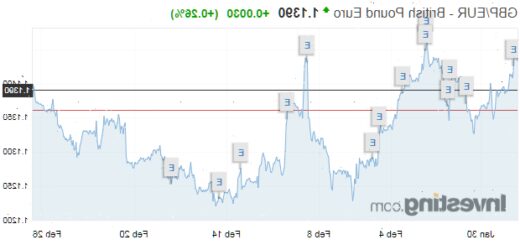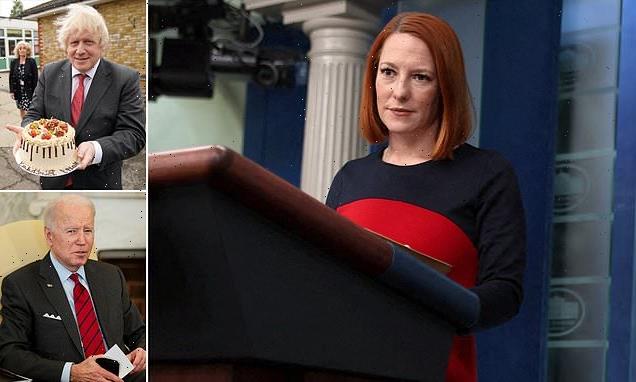THE pound shot up against the euro today as Brexit pledges from both the Tories and Labour encouraged currency traders.
Sterling rose in value against the euro by 0.26 per cent as of 9am this morning.
A pound is now worth 1.14 euros, the highest value since 8 February when Bank of England governor Mark Carney gave a reassuring speech on monetary policy.
The uncertainty surrounding Britain's place in Europe is behind recent fluctuations in exchange rate, but Brexit isn't the only cause.
Investors appear to be betting that the Bank of England will raise interest rates again in May.
Consumer price inflation (CPI) held at an annual rate of 3.0 per cent in January, unchanged from the month before and above a consensus forecast of 2.9 per cent.
"This adds further weight to the case for higher interest rates sooner rather than later," wrote Hargreaves Lansdown economist Ben Brettell in a note to clients.
"It seems domestically driven inflation could seamlessly take over from the Sterling-related price rises we've seen since the Brexit vote. If this is the case, some tightening of monetary policy looks increasingly appropriate."
What has happened to the pound in the last few months?
Sterling has been helped in recent weeks by a lack of bad news around Brexit, analysts say.
The pound had dipped to under 1.08 euros last August but has made steady gains since and peaked at 1.15 on February 1, 2018 – the highest in seven months.
It was the strongest the pound has been since hitting 1.16 euros on June 8, 2017.
The pound was labelled the best performing currency of 2017 and it had a flying start to 2018 and looks set to surge to higher levels.
Analysts said Sterling has been sold off this week as some traders could not resist cashing in on recent strong gains.
Despite making gains throughout January and February, Sterling is currently hovering around the levels it started 2018 with.
How is Brexit affecting currency rates?
There is continuing uncertainty over the economy despite stronger than expected GDP growth figures.
But hopes that the UK will soon agree a Brexit transition deal with Brussels have contributed to the currency’s strong performance.
Michael Hewson, chief analyst at CMC Markets, said the only event that could send the sterling plummeting if talks with the EU broke down completely, which he said did not look likely as Brussels looked more amenable to negotiating with Britain.
Towards the end of last year, sterling enjoyed a slight surge as the first phase of the Brexit talks were concluded.
Both the UK and the EU’s remaining 27 member states will face "substantial losses" without a deal on Brexit, according to a recent report.
Europe would be clobbered by 1.2million job losses if no agreement were reached, while Britain would take a 4.5 per cent hit to GDP, according to the Centre for Economic Policy Research.
How to get the best holiday money rate
WE spoke with Hannah Maundrell, editor-in-chief at money.co.uk to find out how you can guarantee the best rate when you go on holiday
- Don’t buy cash at the airport – you’ll always be able to beat the rate with a bit of forward planning
- Compare travel money companies online – Factor in delivery costs and choose the option that gives you the most cash to spend on holiday. If you’ve left it until the last minute order online for airport collection so you get the best of both worlds.
- Use comparison tools – MoneySavingExpert’s TravelMoneyMax enables you to compare pick-up and pre-order rates.
- Don’t pay for travel money with a credit card – it’s likely you’ll be charged a cash withdrawal fee which adds to the cost.
- Top up a prepaid card to lock in your rate now – Choose your card and read the T&Cs carefully as some apply hefty fees. WeSwap, FairFX and Caxton FX are all worth checking out.
- Always choose to pay in the local currency rather than sterling – This will help you avoid sneaky exchange fees
Where is the best place to get euros?
Euros can be bought at supermarkets, the Post Office and currency specialists – but rates vary massively.
The best rates can often be found at specialist online outlets, such as Travelex, which will deliver your cash directly to your home.
Alternatively, FairFX offers currency cards which you can load up with sterling and then spend abroad like a debit card.
Travellers can use comparison sites, like MoneySavingExpert's TravelMoneyMax, to find the best rate.
If you order in advance and pick up the cash then you’ll most likely get a better rate than if you walk in.
You can also buy last-minute currency at the airport, but it's almost always much cheaper to buy your currency before you get to the airport.
Source: Read Full Article




